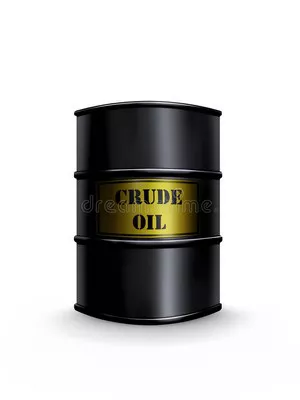Gasoline futures offer individuals and businesses the opportunity to speculate on, hedge against, or manage the price risk of gasoline in the future. By buying gasoline futures contracts, investors can take advantage of potential price fluctuations or protect themselves from adverse price movements. In this article, we will provide a comprehensive guide on how to buy gasoline futures, highlighting the key considerations and steps involved in this process.
1. Understanding Gasoline Futures Contracts
Gasoline futures contracts are financial agreements that allow participants to buy or sell a specified quantity of gasoline at a predetermined price (the futures price) on a future delivery date. These contracts are traded on regulated commodities exchanges, such as the New York Mercantile Exchange (NYMEX) and the Intercontinental Exchange (ICE). Gasoline futures contracts represent the price of gasoline per gallon and are denominated in U.S. dollars.
2. Key Factors Influencing Gasoline Prices
Before delving into the process of buying gasoline futures, it is crucial to understand the key factors that influence gasoline prices. These factors include:
Crude Oil Prices: Gasoline prices are closely linked to crude oil prices, as gasoline is derived from crude oil. Changes in crude oil prices have a significant impact on the cost of gasoline production, distribution, and ultimately, the price at the pump.
Supply and Demand Dynamics: Gasoline prices are influenced by the balance between supply and demand. Factors such as production levels, refinery capacities, geopolitical events, and economic conditions can affect gasoline supply and demand, thereby impacting prices.
Seasonal Variations: Gasoline demand tends to vary seasonally, with increased consumption during the summer months due to higher travel and vacation activities. Seasonal variations in demand can impact gasoline prices.
Taxes and Regulations: Government taxes, regulations, and environmental policies related to gasoline production and consumption can influence prices. Changes in taxation or regulatory frameworks can affect the cost structure and, subsequently, gasoline prices.
3. Selecting a Brokerage and Account Setup
To buy gasoline futures, you need to open an account with a brokerage firm that offers access to commodity futures markets. Research reputable brokerage firms and choose one that aligns with your trading goals, provides a user-friendly platform, offers competitive commission rates, and provides robust customer support.
Once you have selected a brokerage firm, follow their account setup process, which typically involves providing personal information, completing required forms, and funding your account. Be prepared to comply with any regulatory requirements, including identity verification procedures.
4. Education and Market Research
Before diving into the world of gasoline futures, it is essential to educate yourself about futures trading, understand the mechanics of the futures market, and conduct thorough market research. Familiarize yourself with the contract specifications of gasoline futures, including contract size, tick size, margin requirements, and contract expiration months. Learn about fundamental and technical analysis techniques used in commodities trading to inform your trading decisions.
Stay informed about current events, economic indicators, geopolitical developments, and market trends that can impact gasoline prices. Utilize reliable news sources, industry publications, and research reports to stay updated on market dynamics.
5. Placing Orders: Buying Gasoline Futures Contracts
Once your account is set up and you have done your research, you are ready to place an order to buy gasoline futures contracts. Follow these steps:
Decide on Contract Specifications: Determine the contract specifications that align with your trading strategy, including contract size, expiration month, and the number of contracts you want to purchase.
Enter the Order: Access your brokerage’s trading platform and navigate to the gasoline futures market. Enter the order details, including the number of contracts and the price at which you are willing to buy. You can choose between market orders (executed at the prevailing market price) or limit orders (executed at a specific price or better).
Review and Submit: Review the order details, including the number of contracts, price, and total cost. Ensure that the information is accurate, and then submit the order.
6. Managing and Monitoring Your Position
After buying gasoline futures contracts, it is crucial to actively manage and monitor your position. Keep an eye on market developments, news, and price movements that can impact gasoline prices. Consider setting up alerts or notifications to stay informed about market changes.
Implement risk management strategies, such as setting stop-loss orders or profit targets, to manage potential losses or secure profits. Regularly review your trading strategy and adjust your positions as needed based on market conditions.
7. Considerations and Risks
It is important to be aware of the considerations and risks associated with buying gasoline futures:
Leverage and Margin: Trading futures involves the use of leverage, which amplifies both potential gains and losses. Understand the margin requirements set by your brokerage and ensure that you have sufficient funds in your account to cover potential losses.
Market Volatility: Gasoline futures prices can be subject to significant volatility due to various factors, including economic indicators, geopolitical events, and market sentiment. Price fluctuations can result in gains or losses for futures contract holders.
Educational Resources: Continuously educate yourself about futures trading, market dynamics, and risk management strategies. Take advantage of educational resources provided by your brokerage, including webinars, tutorials, and research materials.
Professional Guidance: If you are new to futures trading or unsure about the process, consider seeking professional guidance from qualified financial advisors or commodity trading experts. They can provide valuable insights, advice, and risk management strategies tailored to your trading goals and risk tolerance.
Conclusion
Buying gasoline futures contracts can provide opportunities for speculation, risk management, and diversification. Understanding the factors that influence gasoline prices, selecting a reputable brokerage, conducting market research, placing orders, actively managing your position, and considering the associated risks are essential steps in the process. By approaching gasoline futures trading with proper knowledge, research, and risk management strategies, you can navigate the world of commodities trading with greater confidence.

